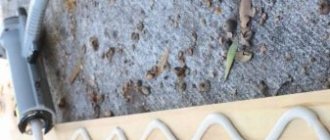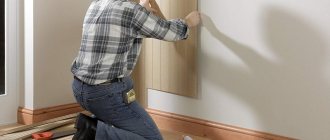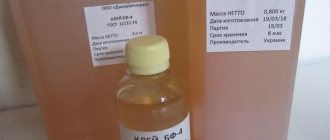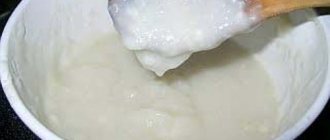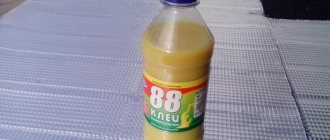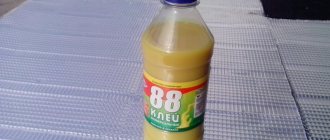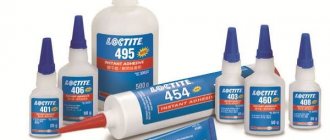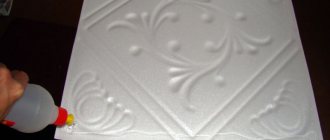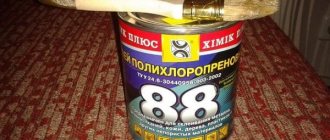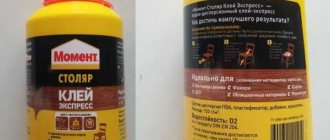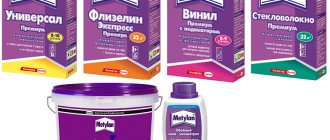In this article we will tell you about Titan Wild glue, which is excellent and is often used in construction and repair work. It is valued for its high level of adhesion to most building materials and resistance to external influences and temperature changes. They are used to glue ceiling tiles, parquet, linoleum, gas silicate blocks, bricks and much more.
In fact, Titan glue is a whole line of compounds developed for specific purposes. We will definitely tell you about this in detail.
Peculiarities
The Tytan company, part of the Polish company Selena, specializes in the production of various building compounds: polyurethane Titan with high moisture resistance, adhesives with a wide range of uses, polyurethane foam and much more.
In this article we will take a closer look at liquid nails from the above-mentioned manufacturer. Most of all adhesives are universal products that are used both for household repairs and for large-scale work. Excellent performance indicators of the products are ensured due to special additives in the composition. All goods are produced abroad and come to Russia through official distributors.
How to apply the composition?
To apply liquid nails, you need to use step-by-step instructions.
- The working surface must be washed, dried and, if necessary, degreased.
- There is no need to apply the composition to the entire base. A stripe or dotted line will be enough.
- For greater convenience, a special pistol is used.
- To protect indoor furniture and other items, use film, thick fabric or newspapers.
- Remember that the setting process takes a second, so the work must be done quickly. Afterwards, you need to securely connect the parts and hold them for about two minutes, pressing them tightly against each other.
- The process of complete hardening occurs in about a day. During this time, it is recommended not to load the connected elements.
Universal construction adhesive 601 (Liquid nails)
Rubber adhesive Tytan No. 601 is produced in cylinders with a mount for a mounting gun. The main advantage of liquid nails over other formats is the ability to glue surfaces slightly spaced from each other (i.e., it does not require a complete fit). Titanium 601 will easily replace nails and screws.
The composition does not lose its properties in the temperature range from -30 to 60 °C. Apply a thick layer to the entire surface, initial hardening takes 5–10 minutes, complete drying takes 24 hours.
Titanium liquid nails are perfect for gluing metal, glass, ceramics, wood, PVC, polyurethane and thermal insulation materials. They cope with heavy building materials, structures and decorative elements.
For gluing heavy structures, the Tytan line includes heavy-duty adhesive No. 901.
Main characteristics and method of application
- Titanium glue is used not only for interior but also for exterior work.
- Used for gluing almost all types of building materials and household items.
- Works great when gluing polystyrene foam.
- Due to its high bonding and sealing properties, it is very economically consumed.
- It can be used in all types of premises, because it has waterproof qualities.
- The glue is absolutely colorless and leaves no yellow marks.
- The product is completely ready for use.
- Safe and non-toxic, because Titan adhesive does not contain chemical additives and solvents that adversely affect human health.
- It has good elasticity and is not affected by changes in temperature.
The use of Titan glue also contributes to savings; it has affordable prices compared to other brands of glue. Its packaging can replace several products due to the following qualities:
- provided that the surface is smooth, even and free of grease, the adhesive is applied in a very thin layer, without reducing its effectiveness;
- sets quickly, only 2-5 minutes are enough;
- It will take less than an hour for the glue to dry completely, and the seam will become strong the next day.
Range
The product catalog of the Tytan brand is varied. Let's take a closer look at the three types of product.
Classic Fix installation product
Classic Fix glue (“Classic Fix”) has versatility. Due to this, the composition can be used indoors and outdoors. To make the transparent composition, the manufacturer used synthetic rubber.
Specifications:
- the complete curing process takes two days;
- product consumption ranges from 150 to 300 grams per square meter;
- resistance to temperatures from – 30 to +60 degrees Celsius;
- Shelf life – 1 year.
Peculiarities:
- increased strength;
- excellent adhesion to most materials;
- resistance to moisture and frost.
Usage:
- working with materials such as wood, metal, PVC, polycarbonate, ABS, glass;
- installation of decorative elements and various items (mirrors, shelves, hooks and much more);
- connection of structures made of light and heavy metals.
Super strong composition No. 901
A rubber compound with excellent strength is used for work indoors and outdoors. During the work, a moisture-resistant, durable and elastic seam is formed.
Technical specifications:
- the glue dries completely within 24 hours;
- composition color – beige;
- material consumption from 200 to 400 grams per m²;
- the glue can withstand temperatures from 30 degrees below zero to 60 degrees;
- The shelf life of the glue is one year.
Peculiarities:
- contains no toluene;
- durable and reliable seams;
- weather resistance.
Usage:
- installation of structures made of materials such as gypsum, plastic, stone, ceramics, glass, wood, plywood;
- connection of elements and panels.
Special glue No. 915
The water-based composition is designed specifically for use in rooms with high humidity. Liquid nails are ideal for adhesion of various building materials to porous surfaces.
Performance characteristics:
- glue color – white;
- the minimum temperature index maintained by the composition is 20 degrees below zero, the maximum is 60 degrees Celsius;
- the material hardens in two days;
- product shelf life – 12 months;
- the flow rate ranges from 200 to 400 grams per square meter.
Peculiarities:
- excellent resistance to steam, humidity and dampness;
- the glue is not susceptible to the formation of mold and mildew;
- fast setting.
Usage: joining elements made of plastic, stone, natural wood, foam and gypsum.
See below for more details.
Liquid nails Tytan Professional: features and application
When renovating, interior finishing or decorating premises, there is often a need for reliable gluing of materials. A specialized glue – liquid nails – can be an indispensable assistant in this matter. Such compositions appeared on the market relatively recently, but have already gained popularity among builders due to their numerous advantages.
The products of this brand are of high quality and affordable prices.
Types and scope of use
Tytan Professional liquid nails come in several types. Based on their purpose, they are divided into two types.
- Universal. Such compositions are suitable for gluing any materials.
- Special purpose products. Such adhesives can be used for certain types of materials. On the packaging of special-purpose adhesives, the manufacturer indicates information about the purposes for which they are intended. These can be compositions for fastening heavy structures or metal parts, for exterior work, for mirrors, glass, for installing foam panels.
Liquid nails also vary in their composition. Adhesives can be made from rubber or acrylic. The first are polyurethane materials with an unpleasant odor caused by synthetic components. Such products are suitable for gluing heavy materials.
To work with such nails, a respirator and protective gloves are required. It is recommended to use rubber adhesives in well-ventilated areas.
Acrylic (water-based) compositions do not contain toxic substances, due to which they are odorless. Such nails cost less than rubber nails, but they do not have increased strength.
Depending on the composition, liquid nails are used for the installation of window sills, cornices, brick structures, various panels, plasterboard products, glass, aluminum, and solid wood. Glue is not recommended for working with damp wood and for creating aquariums.
Advantages and disadvantages
Tytan Professional liquid nails, like other assembly adhesives, have both advantages and disadvantages. Therefore, before purchasing, you should carefully read all the characteristics. The composition has more advantages.
- High adhesive strength. Nails can withstand loads from 20 to 80 kg/cm2.
- Resistant to rust formation.
- Ease of use. For convenience, you can use special pistols.
- A “clean” process of joining parts, in which there is no dirt or dust.
- Quick adhesion of glued materials (within 30 seconds).
- Can be used on uneven surfaces.
- Fire resistance.
- Affordable price and economical consumption.
The only disadvantages of liquid nails include their unpleasant odor and possible difficulties when working with the material for the first time.
Range
The construction market offers many varieties of liquid nails from the manufacturer Tytan Professional. The company produces a wide range of products for construction and finishing works.
There are several types of the brand's most popular liquid nails.
- Classic Fix. This is a clear rubber mounting adhesive that can be used both indoors and outdoors. It is characterized by high adhesion, moisture and frost resistance. When hardened, the product forms a transparent seam.
- Heavy-duty adhesive No. 901. The rubber-based material is suitable for exterior and interior use. Thanks to the improved composition, the product can withstand increased loads. The composition is recommended for gluing heavy structures; it forms a waterproof seam.
- Liquid nails for bathrooms No. 915. This is a water-based composition characterized by increased resistance to high humidity, high temperatures and steam exposure.
- Mirror adhesive No. 930. It is recommended for attaching mirrors to various bases (concrete, wood, ceramic). The product has a high initial adhesion force.
- Adhesive for moldings and panels No. 910. This is a water-based composition designed for gluing elements made of wood or plastic. It is highly resistant to mold and other biological damage. The product has a high initial setting and resistance to adverse climatic conditions. The composition can withstand temperatures from -20°C to +60°C.
Thanks to the wide range of products, everyone can choose the composition suitable for specific types of work.
Tytan Professional sealants
Titan Professional offers high-quality sealants for any task: silicone and silicate sealants, acrylic, polymer, polyurethane (PU), bitumen and rubber sealants. In addition to universal and multi-purpose compounds, the brand offers specialized sealants (roofing, for example).
Silicone sealant
Titanium silicone sealants have proven themselves well in professional circles. They have a high level of adhesion to most materials and are resistant to various weather conditions. The universal sealant is used not only to seal seams and seal joints, but also to seal wires and protect polyurethane foam from ultraviolet radiation. Withstands 1 freezing cycle.
In addition to the universal range of Tytan silicone sealants, it includes sanitary sealant, glass sealant, kitchen and bathroom sealant, marble sealant, window, door and siding sealant, acrylic bathtub sealant, high temperature sealant, etc.
Multi-purpose sealant
Tytan Multi-Purpose Sealant (Hybrid) can be used to bond and seal even on wet surfaces. The composition is odorless and does not contain solvents, so after drying it can be painted.
This sealant practically does not age and retains its elasticity.
Like the entire Titan line, the multi-purpose sealant is suitable for most building materials: ceramics, glass, concrete, cement, stone, metal, wood, polycarbonate, PVC, etc. The sealant is excellent for roofing work.
Acrylic sealant
The brand’s acrylic sealant has a high level of adhesion to porous materials; it can be applied to wet surfaces and can also be painted after drying. The sealant quickly forms a film that can be removed before complete hardening; then only a mechanical method will help.
Preparation of mortar mixture
The condition for preparing the solution is room temperature of the driest mixture of plytonite and water. If the bag was stored or purchased in cool weather, then before use it should be kept warm for up to two hours.
The solution is made from purified water without chemical compounds, which is poured into a container with a cleaned bottom and walls. It is forbidden to knead in a dirty container or with dirty tools. If a construction mixer is used, then the attachment is new or cleaned from the previous batch.
According to the instructions, for one kilogram of dry Plitonit glue you need 240 ml of water. That is, approximately 6 liters of water are consumed for a 25 kg bag.
Initially, water is poured, and then the dry mixture is poured.
To check whether the solution has been prepared correctly, apply it to the wall; if there is no dripping, then the consistency is correct. The stirred mixture is left for 5 minutes to swell, then mixed again. Throughout the work, the mixture must undergo additional mixing.
Useful video on the topic:
Advantages and disadvantages
First, let's look at the advantages of liquid nail compositions.
- Spacious and easy to use.
- Excellent adhesion to a variety of materials.
- Connection reliability. The layer can easily carry loads of up to 80 kilograms per square centimeter.
- The product is not susceptible to rust formation.
- When working with construction adhesive, dust and dirt do not form. There is also no noise.
- The composition sets quickly, literally in seconds.
- Liquid nails can be used on surfaces that have defects. The product greatly simplifies the process of laying material on curved bases.
- Unlike standard fasteners, glue maintains the integrity of the surface without destroying it.
- The compositions offered by modern manufacturers are safe for health due to the non-toxicity of the elements.
- A high-quality product is not afraid of increased moisture. Some compounds can withstand low temperatures.
- Excellent fire resistance.
- Favorable expense.
Experts assure that the product has no significant shortcomings. Except that some compounds have a sharp and unpleasant odor.
Purpose and types
Titanium glue is universal and can be used for different surfaces.
For example, there is Titanium for foam plastic, tile adhesive, for polystyrene foam, and the like. The glue itself is multicomponent. This material has excellent technical characteristics, including resistance to temperature changes, is not afraid of a humid environment, frost-resistant, etc.
Universal titanium adhesive is available in different forms:
- Liquid Nails.
- Glue mastic.
- Universal glue.
Let's consider all its features and properties.
Universal
Mainly used for gluing linoleum, wood, parquet, polyvinyl chloride, polystyrene foam.
The glue itself is in a sealed package, which is squeezed out of it using a special dispenser. Once the material has dried, the seam is practically invisible.
It must be applied to a previously cleaned and prepared surface. Universal Titan dries in about one hour. Tile material is very popular for wall decoration.
Adhesive mastic
Used for gluing materials to a wide variety of surfaces, for example, chipboard, fiberboard, plasterboard, wood, brick, plaster, cement, concrete. Used for special ceiling tiles. Before using it, the composition must be thoroughly mixed.
Liquid Nails
Produced in small cans. The glue is squeezed out using a special construction gun. It is used for a variety of purposes. Operates in different temperature ranges.
Can be used both outside and inside the room. Few things glue as well as this type of Titan glue. So, it is used for gluing wood, PVC, polyurethane, ceramics and even metal outdoors.
Characteristics
Below, we will consider the technical characteristics of transparent Titan glue.
- Does not create any load on the surface being coated.
- Environmentally friendly.
- Heat resistance up to +100°C.
- Minimum seam area.
- Excellent viscosity.
- Has excellent adhesion to various surfaces.
- Versatility.
- Frost resistance.
- A waterproof seam is created.
To perform a particular job, the correct selection of Titan adhesive is necessary. One of the most popular ones is polyurethane. They can be used to glue glass and plastic surfaces. It dries quickly and has good viscosity.
Due to this, it is convenient to use when gluing material to the ceiling. Unlike its analogues, it has a rather pungent odor. Therefore, when working with it, the room should be well ventilated.
Advice! When gluing a particular surface, drafts are not recommended. This may negatively affect the quality of gluing and the drying process of the composition.
It dries very quickly. This eliminates the possibility of the surface peeling off and the material moving to the side. It is best to read the manufacturer's instructions before using it.
This is important, because the recommendations for use should include expanded polystyrene or polystyrene foam; if they are not, then remember, some compositions contain solvents. Their presence will cause deformation and corrosion of the plastic.
Therefore, you can use Titan adhesive for tiles. You can glue ceiling tiles with this composition without much difficulty.
Its use is especially practical if the glue accidentally stains the material being glued. To remove it from the ceiling you need to use a diluted solvent. Using this composition dissolves the glue and even stains and marks are completely removed.
Description and features of Titan glue
Adhesives of the Russian brand “Titan” have been produced since 1992 and have a wide spectrum of action and are considered universal. With their help, you can connect homogeneous and dissimilar materials - the adhesion force will be high in any case. Adhesive compositions "Titan" are used to connect:
- wood;
- linoleum;
- laminate and parquet;
- wallpaper;
- paper and cardboard;
- polystyrene foam;
- plastic;
- metal;
- concrete;
- ceramics;
- gypsum;
- skin;
- fabrics;
- aerated concrete;
- ceiling tiles.
“Titan” will be able to replace a whole set of adhesives for construction purposes: tile adhesive, compositions for laying porcelain stoneware, tile blocks. Polyurethane foam of this brand is used for installing PVC windows, liquid nails and universal glue are used for fixing mirrors, cabinets, and for repairing any household products. Titanium sealants help seal seams and joints in the bathroom and kitchen.
The composition of “Titan” does not spoil materials, is suitable even for different types of plastics, is environmentally friendly and does not harm humans. Adhesives are suitable for interior and exterior use; they are waterproof and do not deteriorate from temperature changes or ultraviolet radiation. After drying, the adhesive joint becomes plastic, elastic, resistant to frost, and has a heat resistance of more than +100 degrees.
What can you glue?
Tytan glue can be used to join most materials: from paper and film to iron and concrete. Despite the existence of a large number of varieties, universal glue is good for most tasks. If used unprofessionally, one bottle will last a long time. Titanium glue copes with many materials, let’s take a closer look at what it glues.
You can glue:
- drywall;
- leather and fabric;
- tree;
- Chipboard, fibreboard and plywood;
- paper;
- ceiling tiles, wallpaper lace, ceiling plinths and PVC panels;
- glass and mirrors;
- linoleum and laminate;
- any types of plastic;
- foam rubber
Testing Titan SM glue on various materials:
Liquid nails Tytan Professional: features and application
When renovating, interior finishing or decorating premises, there is often a need for reliable gluing of materials. A specialized glue – liquid nails – can be an indispensable assistant in this matter. Such compositions appeared on the market relatively recently, but have already gained popularity among builders due to their numerous advantages.
The products of this brand are of high quality and affordable prices.
Types and scope of use
Tytan Professional liquid nails come in several types. Based on their purpose, they are divided into two types.
- Universal. Such compositions are suitable for gluing any materials.
- Special purpose products. Such adhesives can be used for certain types of materials. On the packaging of special-purpose adhesives, the manufacturer indicates information about the purposes for which they are intended. These can be compositions for fastening heavy structures or metal parts, for exterior work, for mirrors, glass, for installing foam panels.
Liquid nails also vary in their composition. Adhesives can be made from rubber or acrylic. The first are polyurethane materials with an unpleasant odor caused by synthetic components. Such products are suitable for gluing heavy materials.
To work with such nails, a respirator and protective gloves are required. It is recommended to use rubber adhesives in well-ventilated areas.
Acrylic (water-based) compositions do not contain toxic substances, due to which they are odorless. Such nails cost less than rubber nails, but they do not have increased strength.
Depending on the composition, liquid nails are used for the installation of window sills, cornices, brick structures, various panels, plasterboard products, glass, aluminum, and solid wood. Glue is not recommended for working with damp wood and for creating aquariums.
How to remove PVA?
Of all existing adhesives, PVA is the most susceptible to dissolution. The arsenal of tools that can be used to dissolve PVA glue includes the following materials:
- 1. hot soapy solution – when treating with this material, the surface should be washed with 9% acetic acid or 96% alcohol;
- 2. baking soda perfectly softens hardened residues; to get the result, you need to walk a hard sponge with soda over the PVA layer - it will be wiped off in a minute;
- 3. water softens the dried PVA clot, its soluble elements are separated from the emulsified suspension, the remains can be wiped off with a rag moistened with acetone, methanol, isobenzene or ethyl acetate.
Types of Titan glue
The most popular types of glue are found on sale everywhere in construction and hardware stores and supermarkets. There are also a number of specialized compounds that are much more difficult to find, for example:
- Titan Professional EV W (chemical professional winter anchor) – a two-component composition for use at sub-zero temperatures (down to -18 degrees);
- “Titan PVA D3” – PVA construction adhesive with increased moisture resistance;
- Titan Thermospray – polyurethane sprayed thermal insulation;
- Power Flex adhesive sealant is a silicone sealant with enhanced strength.
Universal glue
Polymer universal Titan SM (“Titan SM”) and “Titan Wild Premium” are adhesives that have a wide range of applications. They are sold in translucent plastic bottles and are conveniently applied through a dispenser. After drying, the seam becomes completely transparent, therefore the scope of use of adhesives is not limited to the color of the surface. Most often, products are purchased for gluing the following materials:
- wood;
- PVC;
- polystyrene;
- wood-based materials;
- carpet;
- glaze and ceramics;
- leather.
How long does it take for universal glue to dry? 1 hour is enough for the composition to dry completely and the product can be used (without serious mechanical stress). The seam remains flexible and does not deteriorate from vibration, it is moisture-resistant, heat-resistant, but gains full properties after 24 hours.
Adhesive foam "Titan"
Several types of adhesive foam are produced under the Titan brand - “Titan Professional 65 Uni”, Titan Professional Euro for block masonry, “Titan 60 seconds”, etc. Such products are characterized by high adhesion to mineral substrates, economical in consumption, perfectly fills cracks and holes. The maximum level of adhesion to surfaces is observed after 2 hours. You can work with the compositions at temperatures from -10 degrees. They are used for installation:
- thermal insulation;
- foam silicate blocks;
- ceramic tiles;
- sand-lime brick;
- gas silicate blocks.
Adhesive mastic
Mastic "Titan" is intended for working with tiles, natural and artificial stone, glass, plywood, brick, and plaster. It can also be used to glue ceiling tiles, baseboards and decorative elements, plasterboard sheets, chipboard and fiberboard. Mastic can be used to level bases and seal any defects.
The composition is frost-resistant, heat-resistant, lasts a long time, and does not collapse. You can work with it at temperatures from +8 degrees. Despite the fact that the mastic sets in 20 seconds, it will not be possible to quickly dry the entire adhesive seam; this requires 12 hours. The glue consists only of safe components; there are no solvents in it.
Liquid Nails
Among analogues (such as “Moment”, “Epoxy-Titan 6 BL” and others), liquid nails of the “Titan” brand stand out for their high degree of adhesion, economical consumption, and moderate cost. They are available in tubes of 200-310 ml, and the larger package is additionally equipped with a glue gun. The most popular adhesives in this series are:
- “Titanium rubber adhesive for roofing” is a roofing composition that reliably fastens metal sheets, tiles, tiles, PVC gutters;
- mounting Classic Fix (“Classic Fix”) - a rubber-based product for any interior and exterior work;
- installation Hydro Fix - a water-based general construction adhesive used in interior work and for gluing porous materials;
- assembly Heavy Duty is a universal tool for finishing work in construction.
The adhesion to surfaces of liquid nails is so powerful that they can become an excellent alternative to metal nails and screws. They are used for fastening tiles and stone, polystyrene and polyurethane, gypsum, cement, brick, cork and other materials. The compositions cannot be applied only to products made of polyethylene, polypropylene and to wet substrates, although after drying the adhesive joint will be moisture resistant.
Powder
Dry powder refers to Titan wallpaper adhesives, which include three varieties - for paper, non-woven fabric, and vinyl. The instructions for use contain all the necessary data on the dilution of the products. They can be easily dissolved in water according to the specified proportions, mixed and after 5 minutes used for their intended purpose. The composition contains additives against fungus and mold, as well as special components that make it easier to adjust the position of the paintings on the wall.
Price
The cost of Titan glue will depend on the type of packaging and type of material. The universal composition can be purchased in quantities of 1 liter for 130 rubles. Titan C will cost from 50 rubles for 25 milliliters. Products with a dispenser are more expensive. The cheapest way to buy glue is in buckets.
Reference! In large construction stores, the price of Titan glue is lower than in remote retail outlets. Competition also has an impact. Fighting for the consumer, manufacturers try to keep the cost of funds at the same level.
Average prices for different Titan products:
- Titanium adhesive mastic – 35 rubles per 250 ml.
- Universal glue – 38 rubles for 250 ml.
- Titan C – 50 rubles per 250 ml.
Products from Titan are varied; you can choose glue for almost any type of internal and external work. It is important to look at the quality of the product when purchasing, its storage conditions and expiration date. It is better not to buy glue in excess, as it will deteriorate over time. Before purchasing, you can consult with a professional who will indicate the best adhesive for a particular type of job. You need to be careful when using very cheap products.
Titan glue: features and tips for use (2 videos)
Types of Titan glue (20 photos)
Classification by composition
Titan brand adhesives are also divided depending on the main composition. Each adhesive has advantages and disadvantages, and also differs from others in the specifics of application, although the difference in the area of use is small. Here are the main types of adhesives:
- Rubber. This includes the Titan Professional line of products, which are convenient to use for wood, particle boards, gluing tiles, baseboards, and baguettes. The adhesives are resistant to changes in pressure and temperature and have excellent elasticity. This same line includes the so-called “liquid metal nails”, which are used to glue mirrors and glass only indoors. The rubber also contains universal liquid nails “Titan 601”, intended for finishing and insulating materials, cornices, sockets, and panels.
- Polyurethane. Adhesive Styro 753, which contains polyurethane, is a representative of this group of adhesives. It can glue almost any material, even bitumen, mineral wool, and is often used for fastening thermal insulation boards and roofing coverings. Polyurethane glue has antiseptic properties and does not allow fungus and mold to multiply.
- Acrylic. Titan Express glue is an excellent product for gluing stone, wood, ceramics, and glass; it hardens very quickly, so it is used for urgent work. Lepnina Decor adhesive is also an acrylic adhesive, has excellent quality characteristics, is suitable for cork, glass, and can glue any decor in the interior.
- Polymeric. The scope of application of such a product is wide, but more often it is used for unusual materials that it does not harm - amalgam, alloys, fiberglass, etc. This product attaches equally well to various types of insulation, ceramic tiles, and moldings. The glue has powerful sealing properties and is not affected by sunlight.
Funds are also divided according to the form of release. They can be packaged in metal buckets, plastic buckets, tubes with a nozzle or dispenser, which are used with a glue gun. Titan is also sold in plastic bottles and small tubes with a screw cap.
Super glue
Still don't know how to dissolve Moment glue? This type of glue is not very easy to remove, so it should not be allowed to harden on the surface. If you urgently need to remove Superglue “Moment”, then you should immediately begin cleaning, and a 100% product – dimexide – can help with this. It can be bought at any pharmacy and is freely available. Moment glue belongs to the category of fast-setting and difficult-to-remove substances.
It should be taken into account that with the help of dimexide, a stain can be removed in a few hours, and you need to have patience for this. The concentrate works great for damaged clothing if it shows signs of Superglue. “Moment” is easily removed: soiled clothes should be soaked in dimexide concentrate for 30 minutes. This is enough to remove the stain.
It is important to know! Acetone can cause damage to the varnished surface on which the Moment glue is located, so it is better to use a more gentle option - dimexide.
If Moment superglue is on a varnished surface, parquet or laminate, you can carefully clean it off with a sharp object, for example, a construction spatula or a knife.
Polyurethane foam STD
Tytan STD one-component polyurethane foam is used to fill and seal joints, cracks and other gaps. Most often used when installing windows and doors. Ideal for wood, stone, concrete and metal.
Advantages of STD foam:
- does not require additional equipment (the bottle is equipped with a special applicator);
- noise insulation up to 62 dB;
- thermal insulation;
- ergonomic packaging;
- can be used for 2 months;
- rapid hardening;
- prevents the appearance of fungus and mold.
Mode of application:
Before use, shake the container thoroughly and then keep it upside down. Apply foam to a clean, degreased and damp surface using an applicator. When hardened, the composition doubles in size.
Characteristics of Titan glue
For each type, the technical characteristics are individual; they depend on the substances included in the composition. The most popular is transparent universal glue, the parameters of which look like this:
- thickness of the adhesive layer – up to 4 mm;
- weight of 1 m2 of glue – 4.5 kg;
- breaking force in the transverse/longitudinal direction – 600/400 N;
- heat resistance – up to +140 degrees.
The properties of the glue allow the finished seam to withstand significant mechanical loads and, after drying, not to become brittle or deteriorate over time. Titan brand products can be used in rooms with any humidity; they can withstand even intermittent direct contact with water.
Modern products and concentrates
To clean unnecessary glue stains from various surfaces, we will need assistants, which are modern chemicals. As a rule, such products can deal with adhesive stains in a few minutes.
So how to dissolve Superglue? Some housewives use products such as alcohol, acetone, soap, vinegar, and water to combat the adhesive base. All of these remedies are effective, especially if they are combined with each other. But this depends on the nature of the pollution.
Let's take a closer look at each method for removing adhesive stains.
Instructions for use
First you need to choose the right glue so that it perfectly matches the materials used. The easiest way to use polyurethane glue is that it dries faster and is easy to apply. When working with glue, you need to ensure good ventilation, but without drafts - the latter interfere with the quality of gluing and change the drying speed of the composition.
You need to work with glue like this:
- Carry out high-quality preparation of the base. All dirt and dust must be removed from the wall, ceiling, and other surfaces. Remove any pieces of old coating that are falling off, apply plaster, and cover up all holes and defects. Sand and degrease metal and plastic products. If possible, use a primer. Immediately before applying the glue, the base must be completely dry.
- Apply Titan glue to one side (for complex or large surfaces, you need to treat all the substrates to be glued; for tiles, apply the glue with a snake). Firmly press the materials together, do not lift your hands or the fixing device for at least a minute (if we are talking about ceiling tiles, you need to hold them with your hand for 60 seconds, then you can release them). Leave the products alone until the glue dries completely.
Adhesive-mastic is applied using a spatula, either pointwise or in a continuous manner if the product has significant weight. “Liquid nails” are applied with a glue gun in stripes or waves in a thick layer; they can be used to finish surfaces with differences and defects.
Dried smudges of glue are visible in bright light, so it is recommended to remove them immediately. Expanded polystyrene and other soft substrates can be cleaned with a damp cloth if the glue has not yet hardened. Remove the glue from solid bases after it has dried by picking it up with a sharp spatula and tearing it off with your hands. You can also use organic solvents – acetone, white spirit – to clean surfaces.
How to dilute glue
It happens that the glue dries out and becomes more viscous. If it has thickened, you can dilute the composition using simple steps. You need to take regular medical alcohol, add it to the glue in a small volume, and shake well. The diluted product dries a little longer, but penetrates better into the smallest cracks and pits. How to dilute the glue in tubes when it thickens? It will not be possible to restore the normal consistency of such a product due to the tightness of the packaging, but it can become too viscous only after the expiration date.
How can you dilute dried glue, how can you remove it from clothes, ceilings and other surfaces?
Thickened glue does not glue materials well, so to restore its performance properties, you can dilute it with medical or industrial alcohol, but in no case with acetone or isopropyl, since the glue completely deteriorates when combined with these substances. Diluted glue takes longer to dry, so it is better not to let it thicken: you need to close the lid tightly or buy the smallest container.
To clean clothes from fresh stains of universal glue, you need to remove it with a napkin and quickly wash the item. To remove old glue, substances such as vinegar, acetone, white spirit, Dimexide, etc. are used, but you need to first test them in an inconspicuous area so as not to completely ruin the clothes. Apply the solution to the stain, leave for 30 minutes and wash as usual. You can try to cut off a thick layer of glue with a thin sharp knife or blade.
To remove traces of glue from the ceiling, use grinders, grinders with special attachments, spatulas and chisels to clean hard-to-reach places.
To protect the respiratory tract and eyes from dust, use goggles and a respirator. For the same purpose, spray the ceiling with warm water from a spray bottle. To make cleaning easier, before work you need to cover the furniture and floor with oilcloth.
The hardest thing to get rid of is dried “liquid nails.” Rubber-based assembly adhesive can be removed using solvents. You can try to clean leather items with petroleum jelly or vegetable oil by wiping the stained area with a cotton pad until the stain disappears or becomes less noticeable. The tiles are cleaned using solvents and rubber spatulas. It is easier to prevent the formation of stains, so before working with glue you need to cover the furniture with polyethylene and change into old clothes that you don’t mind getting dirty.
